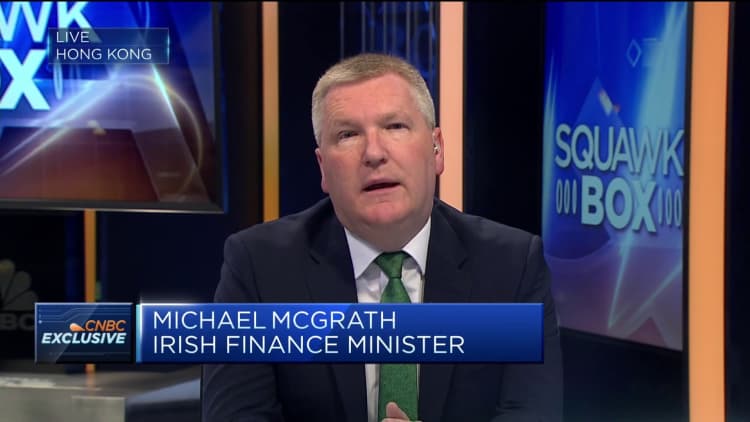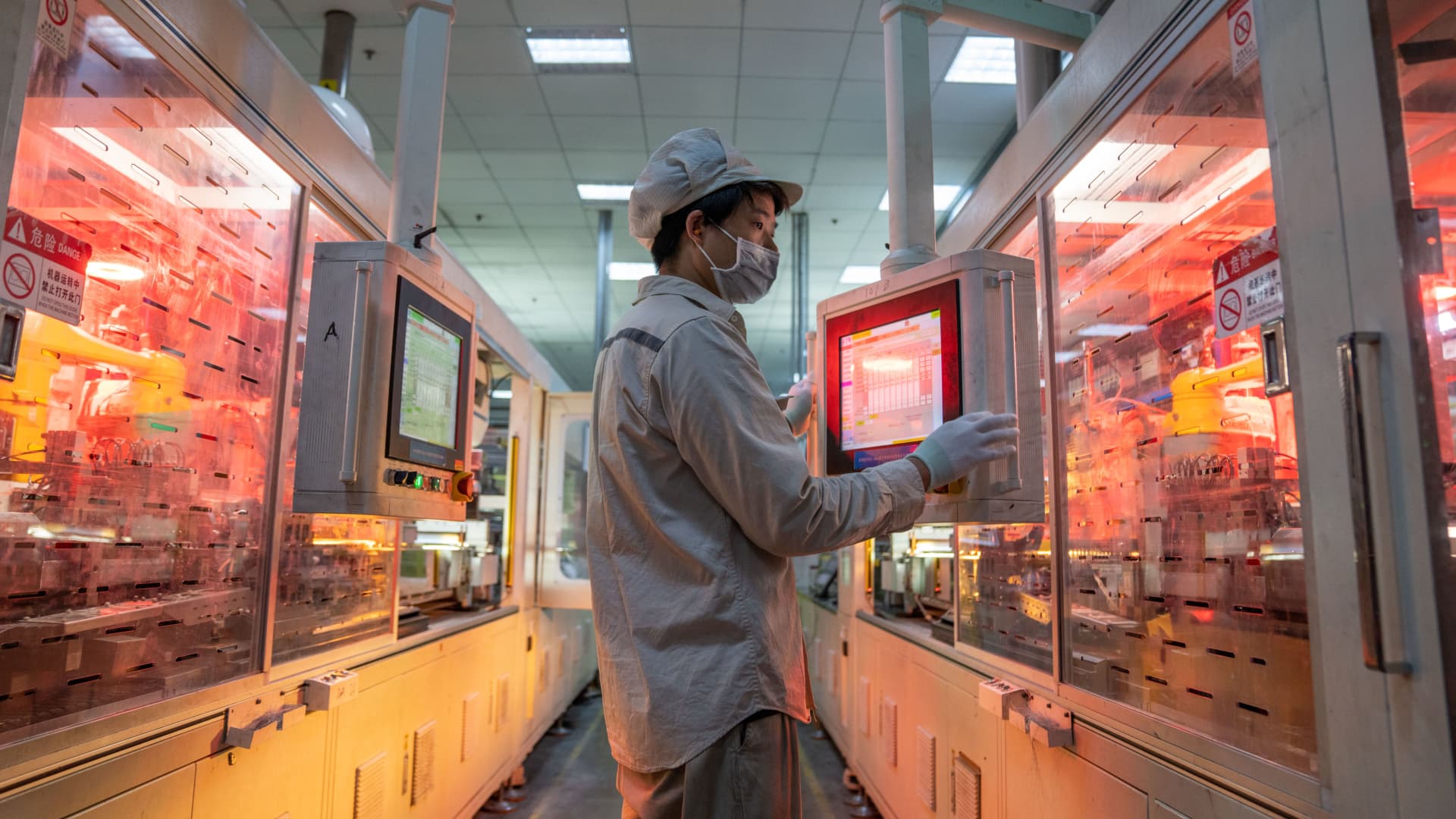A photovoltaic module company in Hefei, Anhui province, on Feb. 20, 2024.
Future Publishing | Future Publishing | Getty Images
BEIJING — Trade tensions between Europe and Beijing will likely escalate due to China’s growing ability to manufacture more cheaply in strategic industries, according to Jens Eskelund, president of the European Union Chamber of Commerce in China.
“What we see right now is the unfolding of a slow-motion train accident,” he told reporters at a briefing last week.
“Europe cannot just accept that strategically viable industries constituting the European industrial base are being priced out of the market,” Eskelund said. “That’s when trade becomes a security question and I think that is perhaps not fully appreciated in China just yet.”
There needs to be an honest conversation between Europe and China about what this is going to mean.
Jens Eskelund
president, EU Chamber of Commerce in China
Chinese authorities have promoted high-end manufacturing as a way to boost technological self-sufficiency and wean the economy off its reliance on real estate for growth. Investment and state financial support for manufacturing have gone up, while that for property has dropped.
Beijing’s emphasis on manufacturing has prompted concerns about overcapacity — China’s ability to produce far more goods than the country or other countries can absorb can then result in price wars.
Eskelund said the chamber was seeing “overcapacity across the board,” whether in chemicals, metals or electric vehicles. “I’ve met very few companies that do not face it,” he said.
“We haven’t seen all that capacity coming online just yet,” he said. “This is something that’s going to hit markets over the next few years.”

“There needs to be an honest conversation between Europe and China about what this is going to mean,” Eskelund said, noting that both sides need to find a way to ensure most trade flows aren’t disrupted.
“It is hard for me to imagine that Europe would just sit by and quietly witness the accelerated deindustrialization of Europe, because of the externalization of low domestic demand in China,” he said.
Manufacturing accounts for nearly one-fifth of employment in the EU — making it the largest category. The sector is also the largest contributor to what the bloc calls its “business economy value added,” with a share of nearly a quarter.
The EU was China’s largest regional trading partner until Southeast Asia recently surpassed it. The U.S. is China’s largest trading partner on a single-country basis.
Growing emphasis on security
Eskelund was speaking at a media briefing for the chamber’s report, co-authored with consultancy China Macro Group and released Wednesday, on the growing political risks for European businesses in China.
Despite the EU’s currently targeted policy stance, broader U.S. actions and Beijing’s response have made operations in China more difficult for European businesses, the report said.
The U.S. has cited national security for export restrictions on Chinese companies’ access to advanced semiconductor technology. Recent legislative efforts have targeted popular social media app TikTok for risks due to its Chinese ownership.
China has us in a geopolitical trap. We remain dependent on sourcing from China but we cannot sell to the market.
Unnamed executive
EU Chamber of Commerce in China report
In China, mentions of security have increased significantly in Beijing’s latest five-year planning document versus prior ones, said Markus Herrmann Chen, co-founder and managing director of China Macro Group, at the media briefing.
He pointed out that every major Chinese ministry, except for veteran affairs, has adopted the concept of “coordinating development and security.”
Trade tilting out of balance
While not directly in the crosshairs of U.S.-China tensions, there are already signs of impact on European businesses.
The report cited one unnamed member in advanced manufacturing as saying their company’s market share in China collapsed to nothing, down from 35%, over the course of 10 years.
“China has us in a geopolitical trap. We remain dependent on sourcing from China but we cannot sell to the market,” the unnamed executive said in the report. “We are investing elsewhere to diversify, but in practice this will take a long-time – maybe more than 10 years.”
“A key challenge is that pricing mechanisms in Europe are so depressed that if we were to drop our Chinese partners today, we would not be able to sell at European auctions, due to us not being able to compete with the prices of Chinese players,” the executive was quoted as saying.
Businesses in Europe and many countries are only buying more from Chinese companies.
China is increasingly sending more goods to Europe via container ships than the other way around, Eskelund said, noting a significant increase since before the pandemic.
“China’s exports achieved the highest share of global exports ever,” he said. “What worries me is that China imports are underperforming as much as they are.”

